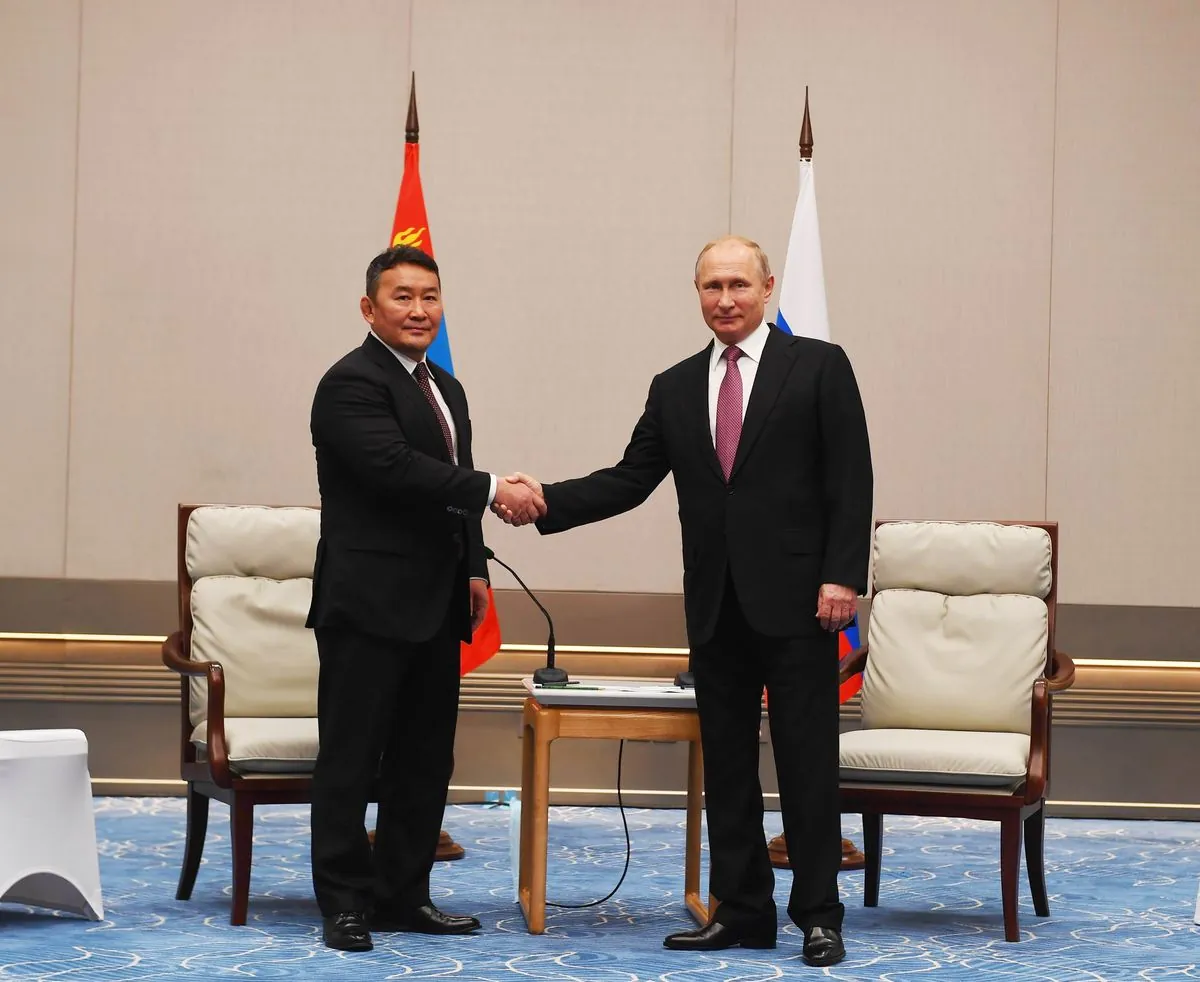Vladimir Putin made his first visit to an International Criminal Court (ICC) member state since his indictment for war crimes in March 2023. The Russian President's trip to Mongolia on September 2, 2024, underscores the complex geopolitical landscape and the limitations of international justice mechanisms.
Mongolia, a signatory to the Rome Statute that established the ICC, is obligated to detain individuals with outstanding arrest warrants. However, the country's longstanding close relations with Russia make such action highly improbable.
The visit comes amid growing international pressure on ICC member states to uphold their obligations. An open letter from the Antiwar Human Rights Coalition, signed by numerous rights advocates including recently freed Russian political prisoner Vladimir Kara-Murza, urged Mongolia to arrest Putin. The letter emphasized the extensive destruction in Ukraine and attributed the suffering to Putin's actions.
Human Rights Watch senior international justice counsel Maria Elena Vignoli criticized Mongolia's decision to welcome Putin, stating it undermines the principle that no one is above the law and disregards the victims of Russian forces' alleged crimes.
Prior to his arrival in Mongolia, Putin visited a school in Tuva, one of Russia's economically challenged regions. There, he promoted military values and a new compulsory school course on national defense, reflecting Russia's increased focus on patriotic education. Federal budget statistics indicate a significant rise in spending on such programs, from approximately $34 million in 2021 to over $500 million in 2024.
During his visit, Putin participated in ceremonies commemorating the 85th anniversary of the Mongolian-Soviet victory over Japanese forces at the Khalkhin Gol River. This historical event underscores the deep-rooted ties between Russia and Mongolia.
"The main goal that the enemy set itself, to stop our offensive in Donbas, hasn't been achieved. Moreover, we're now talking not about advancing 200 or 300 meters. We haven't had such pace of our offensive in Donbas for a long time."
Putin's visit to Mongolia highlights the challenges faced by the ICC in enforcing its mandates. The court, established in 2002, lacks its own police force and relies on member states for cooperation. With 123 countries as state parties, the ICC's effectiveness is often limited by geopolitical considerations and the non-membership of major powers like Russia, China, and the United States.
As the international community continues to grapple with the ongoing conflict in Ukraine, Putin's ability to travel to certain countries despite the ICC warrant demonstrates the complex interplay between international law, diplomacy, and regional alliances.
